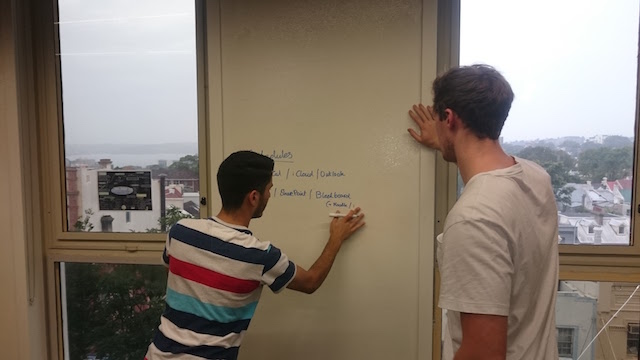What are the technologies that will change business over the coming years? During Gartner’s Business Transformation & Process Management Summit in Sydney on Tuesday, we had the opportunity to talk to Brian Blau, the company’s Vice President of Research, about what he sees as the five technologies that are most likely to change business.
Brian himself brings a lot of experience with emerging technologies, while he’s currently Gartner’s leading Apple analyst and specialises in consumer and mobile & Wireless technologies he spent the previous twenty years working in the virtual reality field which gives him an informed perspective on the many of the current popular tech buzzwords.
Talking to Blau in the busy analysts room at the Sydney Hilton, he kept reaching into his bad to show off his collection of the latest gizmos ranging from VR headsets through to smartwatches and fitness trackers, showing his enthusiasm for the field he covers.
Augmented and Virtual Reality
“It’s been a long time coming, I had twenty years in AR/VR and I’ve been an analyst for six and I’m glad I have that background,” says Blau.
Blau sees augmented and virtual reality tools altering the workplace dramatically as they change the experience for workers. The industries he sees being affected in the near future are sectors like field service, training and design.
Wearables
“Wearables are interesting devices,” Blau says. “You can almost think about them as transitory technologies so today there may be lightweight analytics about what employees do at work or what consumers do in public is kind of a stepping stone. If that device has a screen or some sort of interface on it, it becomes interactive.”
Blau cautions though that much of the data gathered from consumer wearable devices is far from reliable and while the quality of information improves there is still a way to go until we can depend upon these devices for life or mission critical tasks.
Virtual Personal Assistants
“These are combinations of hardware and software – Apple Siri, Microsoft Cortana or Amazon Alexa,” Blau states. “These Virtual Personal Assistants are having a big transformation, today they answer simple questions based on rules but in the future they are going to be hyper-smart.”
“Facebook, Apple and the rest of them have opened up their platforms to developers, we think this has applicability to all sorts of consumers and in the business domain we’re going to see these devices used in workplaces.”
Cameras and computer vision devices
“There are two advances that are happening, there are multi lens camera devices and the algorithms behind them are starting to decode what’s behind the image,” says Blau. “I think this is exciting technology as it’s an input that’s never been digital before.”
Blau sees the increasing sophistication of cameras and the software processing the images as finding important applications within the workplace, “there’s a lot of tasks around vision that are manually processed at the moment and computer vision is going to automate those.”
Personal IoT devices
“These are more about the workforce, the sensors that are in the work environment are those that people could bring to work, it overlaps with wearables.” Blau says, “the next generation of IoT devices are going to be much more personal.”
“Almost every business I talk to is very interested in virtual reality and wearables,” states Blau. “There is a high amount of interest because there’s a firm belief these devices will change workplace and consumer behaviours.”
For these devices to be adopted on a large scale, they will have to become more reliable Blau believes with the barriers currently being that most devices and their software are still at Minimum Viable Product stage.
Tips for the future
Blau advises businesses looking at these technologies should start with a basic belief that the specific technology will benefit their business, then they have to experiment and identify what the return on investment will be. “My main advice is to experiment with the technology, run a series of pilot programs, make sure you’re diverse in what you are looking and keep an open mind,” he says.
“The goal with these devices is to change behaviour,” Blau states. “The real challenge will be to get it right over time. You’ll have to reiterate time upon time.”
With these new technologies entering the business world, companies are going to face changes both within their workforces and in their markets. Being across the potential of these technologies is going to be essential for managers.
Similar posts:




